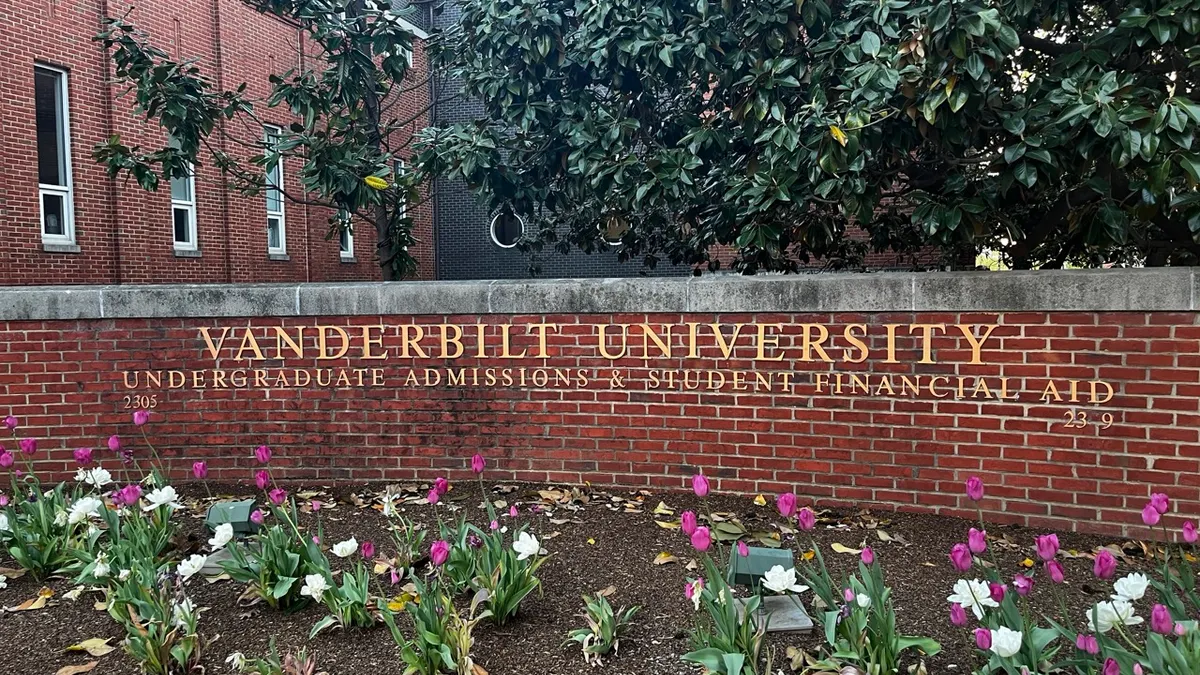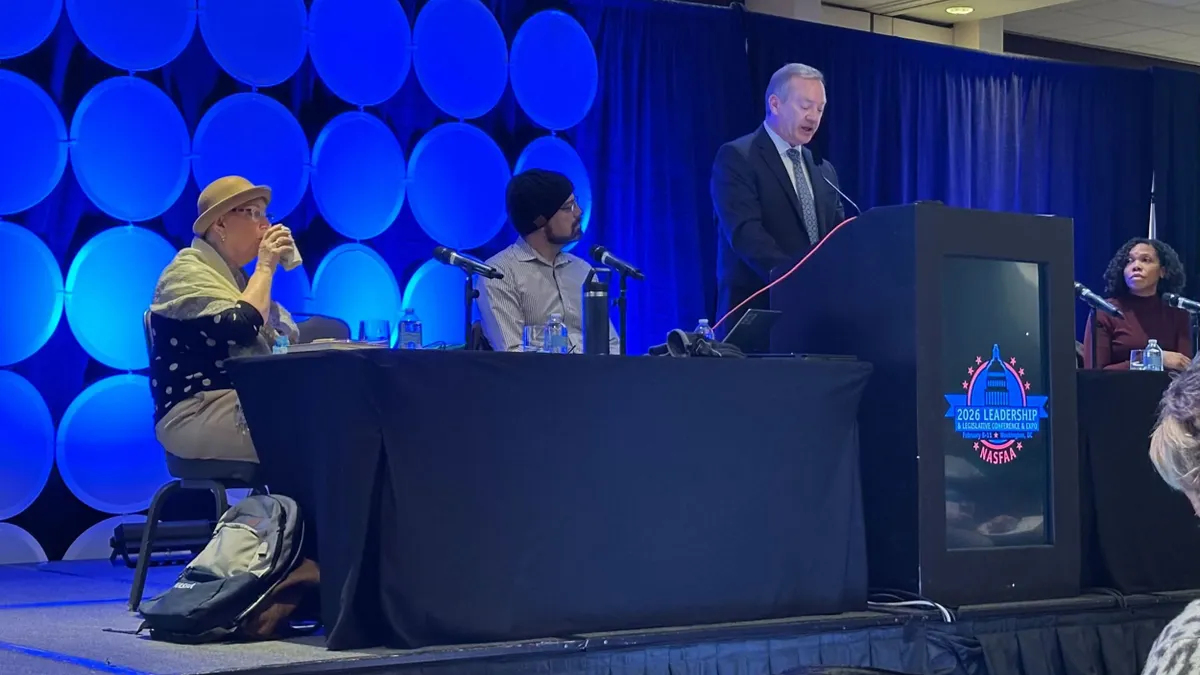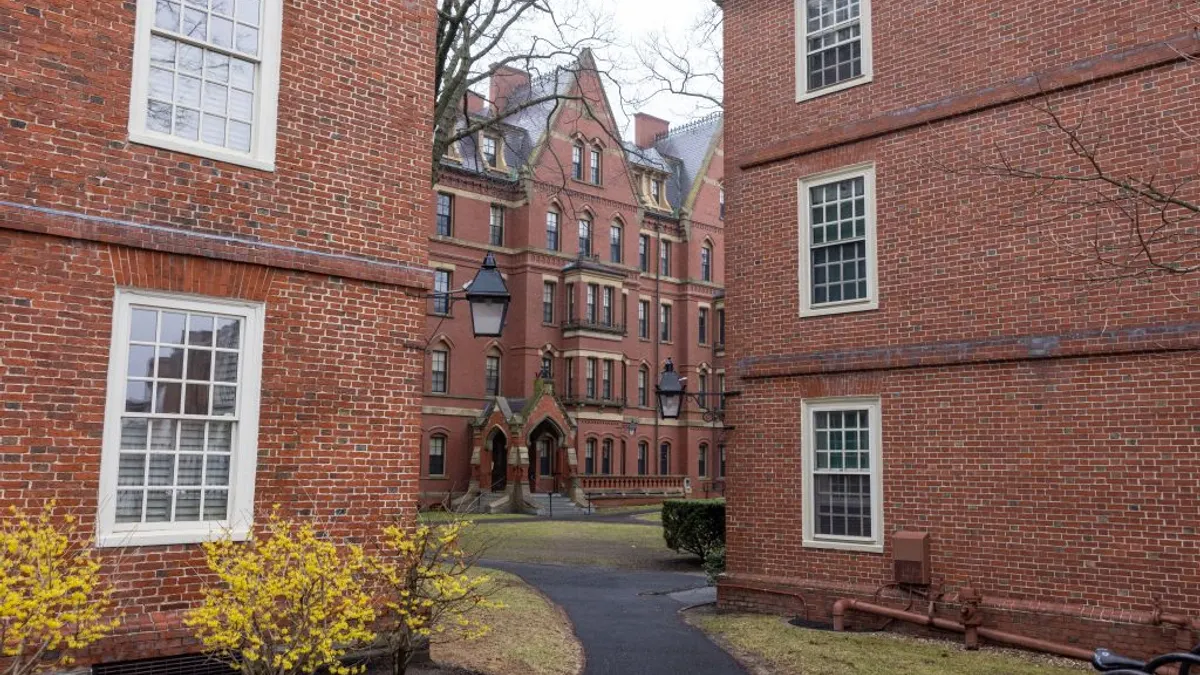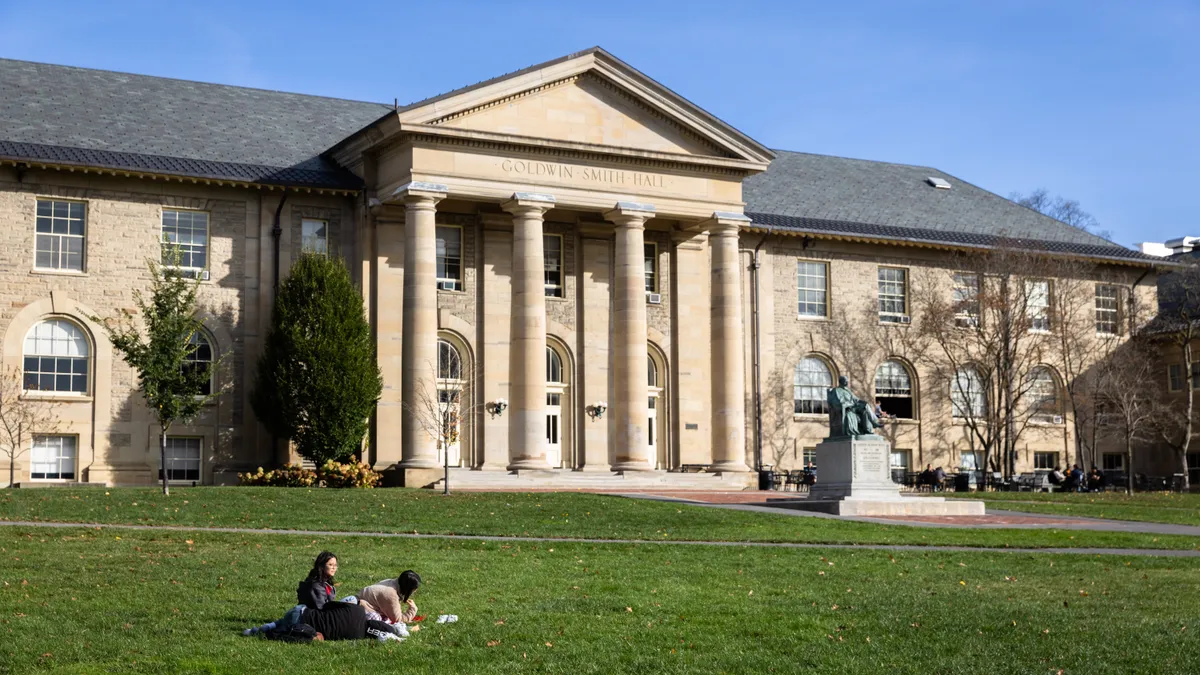Almost three dozen selective colleges are facing an antitrust lawsuit that alleges they use early decision admissions to reduce competition and financial aid packages for students.
The lawsuit, filed Friday, argues that early decision admissions — a college application option that ostensibly binds a prospective student to enroll if they receive an acceptance offer — allows colleges to artificially decrease competition, charge higher tuition rates and offer less financial aid.
Friday's filings also named as defendants two college application platforms, Common App and Scoir, as well as the Consortium on Financing Higher Education, a coalition of selective liberal arts colleges that share information. All 32 defendant colleges either are or have been members of CFHE, according to the lawsuit.
In addition to damages, the lawsuit is seeking a permanent block on the defendants' use of early decision admissions.
Taking aim at early decision
Early decision is often marketed as a way to give students a better chance at acceptance to a highly selective college. For example, Brown University accepted 18% of prospective students who applied through early decision for its 2020 incoming class, compared to just 4% of those who applied through regular decision, according to a 2022 report.
But the process has come under significant scrutiny, with critics labeling it a form of affirmative action for wealthy students, who can afford to attend college even without competitive financial aid offers.
Friday's lawsuit alleges that the named colleges are "participating in practices that entrench patterns of inequality of access while inflating the price of attendance." The plaintiffs include current and former students from Wesleyan University, Vassar College and Washington University in St. Louis.
Under regular admissions, college applicants receive their proposed financial aid offers around the same time as their acceptance letters, allowing them to compare their options. Colleges are also "incentivized to offer more generous packages in their initial offers" because administrators know students likely have multiple choices, the lawsuit said.
But students applying under early admissions lose out on the benefits of market competition, the complaint alleges. They apply to one college early and receive their acceptance offer — one they believe they are legally obligated to accept — before seeing their financial aid package. Therefore, they cannot compare their financial aid package against offers from other institutions.
Does binding mean legally enforceable?
One of the most commonly understood tenets of early decision — that the process is legally binding — is a falsehood, the lawsuit said.
Early decision applications intentionally invoke the patina of legal documents and may require the signature of an adult, such as a parent or high school counselor, the lawsuit argued. They may also state that students will only be released from the "binding" agreement if they can prove financial hardship.
But the agreements are "widely known and accepted" by the colleges and groups named in the lawsuit as not being legally enforceable, the lawsuit alleges.
Still, it's enough to scare applicants into accepting the first and only offer they receive — an often costly decision, according to the complaint. Students rarely pay the sticker price for tuition, especially at private colleges.
"School administrators know that very few applicants decline an Early Decision offer based on cost, especially after having been falsely told that they may do so only if the offer is inadequate to make it 'possible' to attend the school," the lawsuit said.
Colleges that don't use early decision could lose out on students bound by the process to another institution — risking both their potential tuition revenue and the quality of their student body, according to the lawsuit.
"Unwilling to subject themselves to these disadvantages, few schools have abandoned Early Decision programs after using them, notwithstanding the broad consensus that they are harmful and unfair," the lawsuit said.
The lawsuit is seeking class action status to include current and former early decision students who attended one of the 32 colleges in the past four years and did not have their education covered by grants. It estimates the class would encompass tens of thousands of members, at minimum.
The colleges named in the lawsuit include:
- Amherst College, in Massachusetts.
- Barnard College, in New York.
- Bowdoin College, in Maine.
- Brown University, in Rhode Island.
- Bryn Mawr College, in Pennsylvania.
- Carleton College, in Minnesota.
- Columbia University, in New York.
- Cornell University, in New York.
- Dartmouth College, in New Hampshire.
- Duke University, in North Carolina.
- Emory University, in Georgia.
- Haverford College, in Pennsylvania.
- Johns Hopkins University, in Maryland.
- Macalester College, in Minnesota.
- Middlebury College, in Vermont.
- Mount Holyoke College, in Massachusetts.
- Northwestern University, in Illinois.
- Oberlin College, in Ohio.
- Pomona College, in California.
- Rice University, in Texas.
- Smith College, in Massachusetts.
- Swarthmore College, in Pennsylvania.
- Trinity College, in Connecticut.
- University of Chicago.
- University of Pennsylvania.
- University of Rochester, in New York.
- Vanderbilt University, in Tennessee.
- Vassar College, in New York
- Washington University in St. Louis.
- Wellesley College, in Massachusetts.
- Wesleyan University, in Connecticut.
- Williams College, in Massachusetts.
The ripple effects of early decision
Even colleges that don't offer early decision admissions help facilitate and benefit from the practice, the lawsuit alleges. It gave Massachusetts Institute of Technology as an example — the highly selective institution does not use binding early admissions but still honors the rules of early decision.
Colleges that do not use early decision have lower tuition rates than similar institutions that do, according to the lawsuit. But when the early decision colleges raise their rates, it allows other institutions to also increase their prices while still remaining competitive, it said.
Students interested in early decision are typically required to apply to the defendant colleges through Common App and Scoir's application platforms, which the lawsuit alleges reduces competition. In addition to requiring applicants to sign early decision documents, the platforms bar students from submitting more than one early decision application.
Colleges on Common App also "routinely remove" students accepted via early decision elsewhere from their own list of prospective candidates, according to the lawsuit.






















